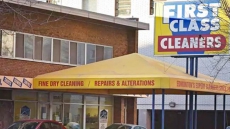CALGARY — Canada may be a global outlier when it comes to its sell-off of gold.
But to Ian Lee, a professor at Carleton University's Sprott School of Business, the decision marks the end of an era that doesn't fit into today's financial system.
"Why did they sell the gold? To convert it into cash, which is liquid," said Lee. "Bullion is not liquid. It sits down in the basement and collects dust."
The country's holdings in the precious metal peaked in 1965 at 1,023 tonnes or about 32.9 million ounces, according to the World Gold Council. But in recent years, gold has lost its lustre for the federal government, which on Thursday announced it was left with 77 ounces in official reserves — less than a quarter the size of a gold bar.
Lee said countries previously measured their wealth by the amount of gold they had, and currencies were fixed to the price of gold. Those days are long gone.
Today the world relies on much more efficient floating exchange rates to balance the value of currencies, and wealth is measured in productivity, said Lee.
"The idea that that's the productive wealth of Canada, in the number of yellow bricks it owns, is just so preposterous."
With the United States abandoning the gold standard in 1933 and then fully severing ties between the dollar and gold in 1971, Lee says bullion no longer holds sway on global finances.
"That was it for gold," said Lee. "From that point on, gold became a member of an asset class, a heavily traded asset class, but it was no longer an instrument of monetary policy."
But those reasons haven't stopped governments around the world from holding vast quantities of gold, with the U.S. currently sitting on 261.5 million ounces, Germany with 108.7 million ounces, and China, Russia and India all actively adding to their already tens of millions of ounces in holdings.
Lee said gold bugs like Rand Paul and Ted Cruz, who fear the collapse of modern monetary policy, have prevented the U.S. government from selling off their reserves. Similar resistance, as well as tradition, has kept other countries also holding onto their reserves, he added.
Peter Schiff, head of Euro Pacific Capital, is another of those gold bugs. He said he believes Canada will likely regret the sell-off.
"I think it was a major mistake for the central bank to do that," Schiff said. "We're on the verge of a major, major meltdown of the dollar."
Like many gold aficionados, Schiff thinks the world could soon return to a gold standard and Canada will likely be forced to buy back the metal at higher prices.
"The irony is Canada is going to have to buy its gold back," said Schiff.
But Don Drummond, a former high-ranking bureaucrat at Finance Canada, said it hasn't made sense for Canada to hold gold for a long time.
He said he helped start the policy for Canada to gradually sell off its gold reserves after it was decided there were better ways to store wealth.
"It was just a realization that that's a lot of money tied up in something that was giving a terrible rate of return. And we didn't need it," said Drummond.
Drummond said that governments with foreign reserves in the trillions might find it difficult to diversify their holdings so they resort to gold at times, but Canada can easily diversify its US$81.5 billion in reserves with various foreign currencies.
A Finance Department said the sale was part of long-standing policy of diversifying its portfolio by selling physical commodities like gold in order to invest instead in assets that are more easily traded.






